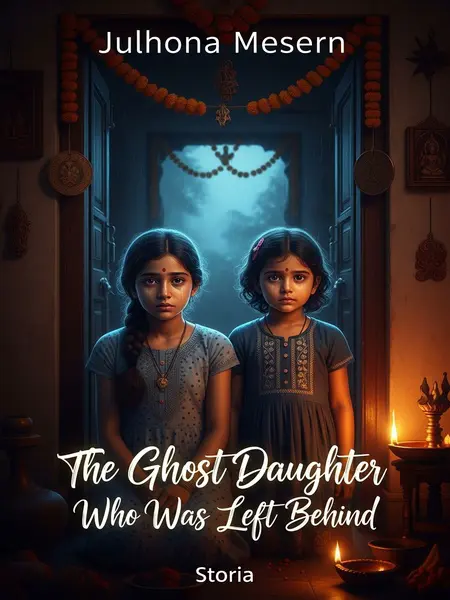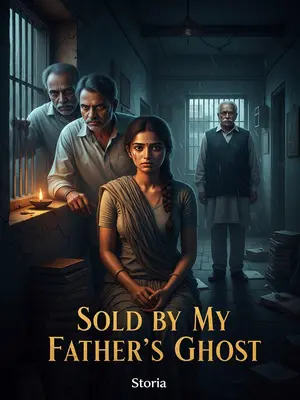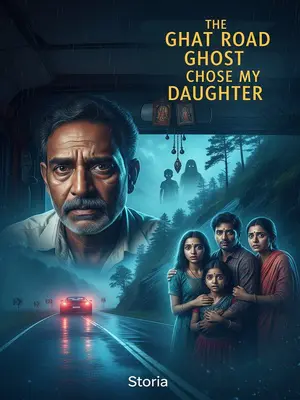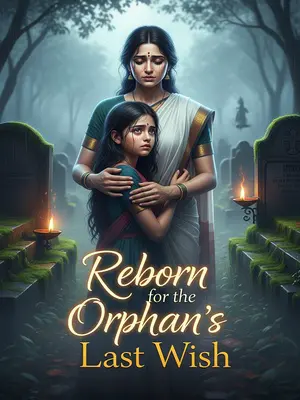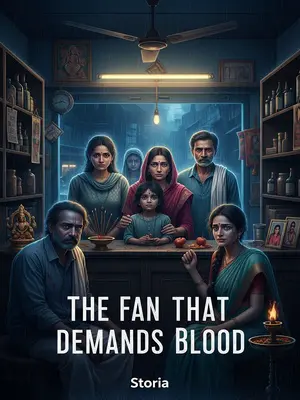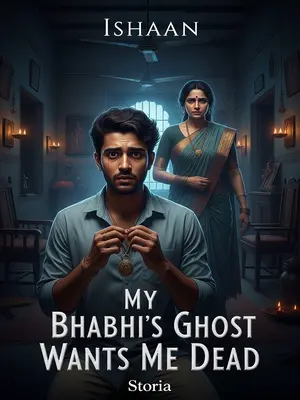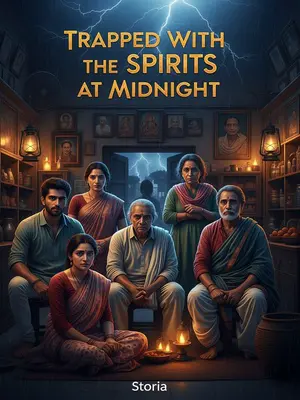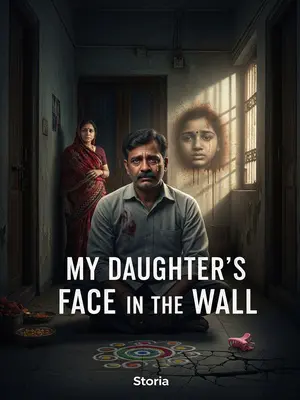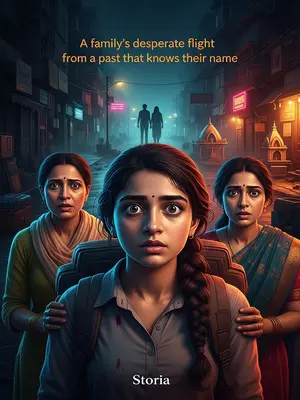Chapter 1: The Night of Secrets
The year I turned nine, the smell of frying onions and the sound of laughter from the aunty next door seeped through our thin walls, carrying secrets I was too young to understand. Sometimes, at night, I could hear their hushed giggles, muffled through the plaster, as if they were sharing jokes that belonged to a world far from Amma and me.
Papa stopped bringing home hot samosas from the market, and Amma’s eyes grew redder each morning, as if the night itself had wrung out her tears. I wondered what had changed, why Amma never hummed while packing my tiffin anymore.
The day Amma found out about Papa’s affair, something inside her broke. She locked the door, drew the curtains tightly, and the world outside shrank away. Her hands trembled as she adjusted her saree pallu over her head, whispering a shaky prayer to our family goddess under her breath. The kitchen knife glinted beneath the harsh tube light, and the pressure cooker’s whistle in the background felt like a distant alarm.
Amma’s sobs shook her shoulders. She said, her voice breaking, “Only in death will your Papa finally wake up.”
Her tears fell onto my cheeks as she clutched my hand. "Beta, only this will make your Papa realise what he has done. Only then." The agony in her whisper was so deep it nearly drowned in her sobs and the distant honking of an auto rickshaw.
As Amma pressed the knife to our wrists, a rush of confusion and longing flooded me. Why couldn't things go back to the days when Amma would smile, humming lullabies while spreading ghee on my paratha? Why did the world turn so cold? I just wanted her to be happy, for Papa to bring home sweets again, for my family to be whole.
But in the end, only I died.
The world faded—Amma’s cries echoed in my ears as my small hands grew cold. I hovered above, uncertain, watching blood soak into the floor, realising too late that it was only my breath slipping away. Amma’s heart kept beating, her body saved at the last moment by neighbours who heard the thud and smashed open the door.
I lingered for ten years, caught between memory and longing.
I watched the seasons spin past—Holi’s colours in the lanes, Diwali sparklers crackling in the dusk. I was just a shadow, hungry for the warmth of family, clinging to memories as the world moved on.
Papa and the aunty next door had a daughter—my little sister.
She was plump, cheeks round as guavas, her silver anklets jingling as she tottered about. The laughter that once filled our walls now belonged to her, while I drifted, invisible, through the corridors.
Amma started a new family too, and had a son—my little brother.
In a small town far away, Amma sang lullabies to a child that wasn’t me. She tied black threads around his wrist to protect him, sent prayers to distant gods, and sometimes I peeped in, aching to curl into her lap again.
They all forgot about me, and I was so hungry.
My bones ached with longing, my stomach twisted with an emptiness that only the living could fill. Sometimes I wandered into the kitchen, breathing the scent of frying onions, wishing I could taste even a crumb of the food that once filled my tiffin. I was so hungry, I could almost taste the ghee on Amma’s hot parathas, the tang of imli chutney from the school canteen.
So I sent them dreams.
I whispered at night, letting the wind carry my voice. In Amma’s sleep, I’d tug at her pallu, pleading for her to remember. In Papa’s dreams, I’d appear at the gate, waiting for him to return from work, just like I used to.
They promised to light lots and lots of diyas and offer me food—a traditional offering for the dead.
They spoke in anxious whispers about arranging a puja, offering sweets, lighting diyas at the crossroads as the pandit advised. Maybe, they said, Meera’s soul would find peace.
But when I went to the place they promised, only a pandit was there.
He sat cross-legged, flicking grains of rice onto a brass thali, chanting shlokas as incense smoke curled into the night. The family was missing—only the paid ritual remained. I waited, hope fading with the flickering light of the lone diya.
But that night, as the lamp flickered behind the door, I realised—I might never see Amma again.
